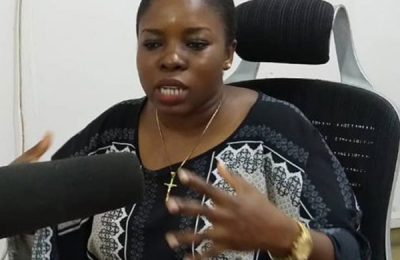
•committee set up for resolution
The Nigeria Labour Congress (NLC) has put its planned nationwide protest on hold following a high-level meeting with the Federal Government over the proposed 50% hike in telecommunications tariffs.

The meeting, held on Monday, resulted in an agreement to set up a 10-man Joint Committee tasked with finding a balanced resolution to the issue.
The planned mass protest, originally scheduled for February 4, 2025, was meant to express workers’ dissatisfaction with the increase, which the NLC argued would worsen the economic burden on Nigerians.
However, after deliberations, both parties agreed to engage in further discussions through a structured framework.
A Memorandum of Understanding (MoU) was signed by key government officials, including the Secretary to the Government of the Federation (SGF), Senator George Akume, and the Minister of Labour and Employment, Alhaji Muhammadu Maigari. On the NLC’s side, the agreement was endorsed by the Congress President, Comrade Joe Ajaero, and its General Secretary, Comrade Emma Ugboaja.
The communique issued at the end of the meeting, titled “Memorandum of Understanding Between the Federal Government of Nigeria and Nigeria Labour Congress Over the Proposed 50% Hike in Telecommunications Tariff”, outlined the following resolutions: “Both the Federal Government and NLC acknowledged the need for technical discussions to address concerns raised about the proposed tariff hike.
“A 10-man joint committee, consisting of five representatives each from the government and NLC, was constituted to thoroughly examine the issue and propose solutions.
“The committee was given a deadline of two weeks—until February 17, 2025—to submit its findings and recommendations.
“Pending the outcome of the committee’s deliberations, both parties agreed to “stay-action”, meaning neither side would take further steps that could escalate the situation.
“Nigerians were urged to remain calm while the committee works towards a resolution.”
Before the meeting, the NLC had strongly condemned the proposed tariff hike, arguing that it would disproportionately affect Nigerian workers and the general public, who are already struggling with inflation and high living costs. The Congress insisted that such a drastic increase in telecom tariffs would not only burden consumers but also negatively impact businesses, particularly in the informal sector, which relies heavily on mobile communications and internet services.
Although some labour activists have expressed skepticism about the government’s commitment to a fair resolution, others see the formation of the Joint Committee as a step in the right direction. Some Nigerians, particularly small business owners and students who depend on affordable telecom services, have called for absolute transparency in the committee’s deliberations.
With the suspension of the protest, attention now shifts to the committee’s recommendations and how both the FG and NLC will navigate this contentious issue to reach a mutually beneficial outcome.
According to the communique, the joint committee has two weeks to submit its findings and propose possible alternatives to the tariff increase. Until then, the telecom sector and its millions of subscribers will be watching closely to see if the discussions yield a “win-win” solution as promised.
ALSO READ FROM NIGERIAN TRIBUNE








